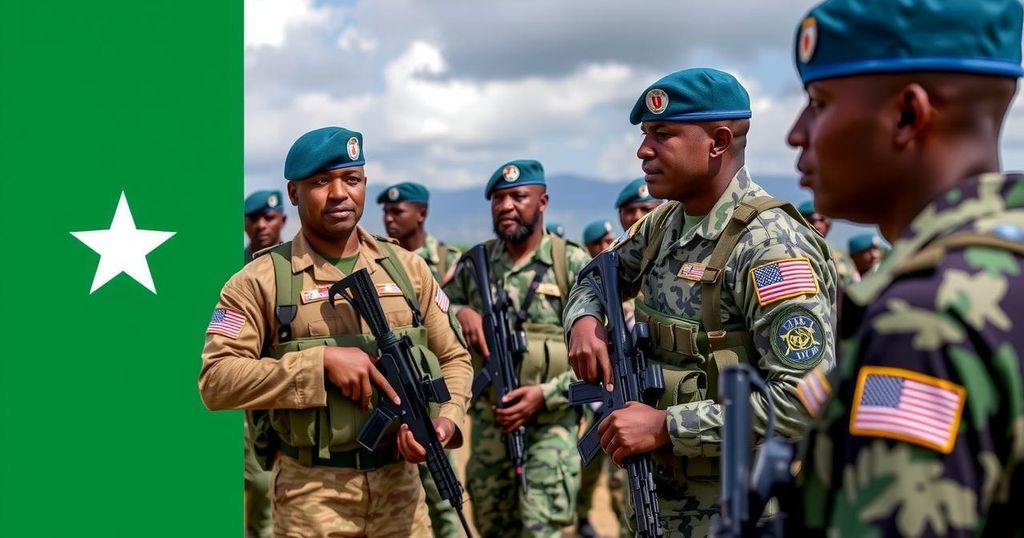U.S. Advocates for U.N. Peacekeeping Transition in Haiti Amid Gang Violence

The U.S. is working to convert the Kenya-led multinational force in Haiti into a U.N. peacekeeping mission due to rising gang violence that has disrupted air traffic. Objections from Russia and China have arisen regarding this transition, and the current force remains inadequately staffed. Historical interventions in Haiti influence public sentiment towards foreign military assistance amid funding shortages and escalating violence.
The United States has intensified its efforts to transform the Kenyan-led multinational force in Haiti into a United Nations peacekeeping mission, driven by increasing gang violence that has recently disrupted air traffic in Port-au-Prince. Initially proposed by the U.S. in September, this U.N. mission aims to secure consistent funding for the multinational force tasked with assisting Haiti’s national police in combating gang activities, which have surged given the current political instability. Following the ousting of the interim prime minister amid escalating violence, gangs are reported to control approximately 85% of the capital, culminating in the recent closure of the country’s main airport due to attacks on aircraft. This week’s U.S. initiative seeks to gain approval from all 15 members of the U.N. Security Council for a resolution that would set in motion the transformation of the Kenya-led contingent into a formal U.N. operation. The resolution calls upon U.N. Secretary-General Antonio Guterres to promptly initiate preparations for this transition, a process that is anticipated to last several months. However, objections have been voiced by Russia and China, who have demanded a comprehensive briefing from the U.N. Secretariat and closed consultations regarding the current situation in Haiti. The Kenyan-led force is currently under-resourced, with only approximately 430 international police deployed instead of the planned 2,500 personnel. Reports indicate that Kenya’s President William Ruto has committed to sending an additional 600 police officers to Haiti in November. Notably, funding for the mission remains critically inadequate, with just over $85 million of the approximately $96 million pledged to the U.N. trust fund for this purpose. The ongoing gang violence in Haiti has been exacerbated since the assassination of President Jovenel Moïse in 2021, resulting in an alarming increase in homicides, kidnappings, and sexual violence. Haitian authorities have expressed a need for an international peacekeeping force, particularly following a resolution from the Organization of American States supporting a U.S.-led operation. While the deployment of the Kenyan force in June marked Haiti’s fourth significant international military intervention, public sentiment remains divided. Some welcome foreign assistance, while others remain wary, particularly in light of past U.N. missions that left a controversial legacy of serious allegations and public health crises.
The article discusses the urgent need for international intervention in Haiti, highlighted by a surge in gang violence and political turmoil. The United States is advocating for the transitioning of a Kenyan-led force into a formal U.N. peacekeeping mission to stabilize the situation. With significant funding challenges and historical context regarding foreign military interventions in Haiti, the piece outlines the complex dynamics at play and the potential implications for local governance and security.
In conclusion, the escalation of gang violence in Haiti has prompted the United States to advocate for transforming the Kenyan-led force into a U.N. peacekeeping mission. While there is significant support for such an initiative, challenges remain regarding funding and international cooperation, particularly with nations expressing reservations about the transition. The socio-political context, marked by recent upheaval and historical intervention, is crucial to understanding the complexities of this situation.
Original Source: www.military.com








